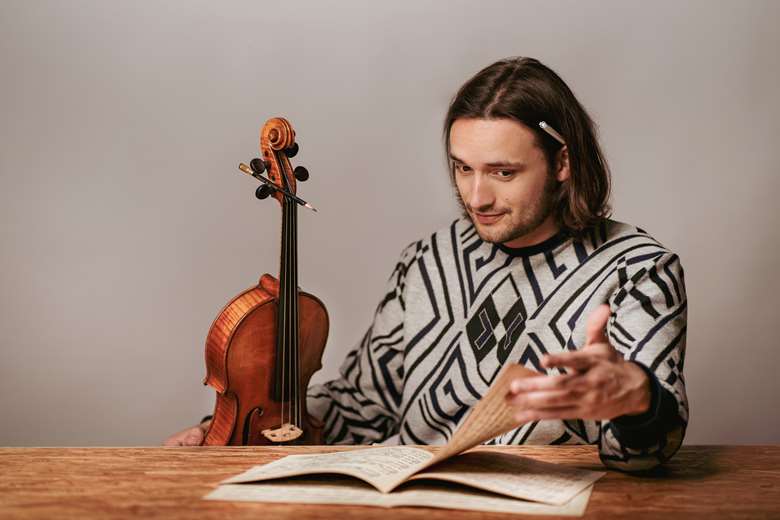Mathis Rochat on the freedom of transcription
Mathis Rochat
Wednesday, August 17, 2022
The Swiss-French violist talks about the freedom and innovation he has unlocked in transcribing for his own instrument.

Let’s be honest, the viola repertoire is small. So small, in fact, that in a violist’s lifetime one cannot possibly be satisfied with playing the only existing works written for viola over and over again. Finding hidden gems by unknown or forgotten composers can be a fun treasure hunt for viola nerds such as myself, but most of those lucky finds have, by now, already been found.
When I recorded my very first album I was presented with a choice: to record the great standards for viola that I had worked on during my studies or to go a different route, to try to create something of my own. I had so much respect for the standard viola compositions that I chose to let them sit and mature with time, to have them emerge at a later point in my career, and chose the second option; to transcribe works written for other instruments.
With that decision, I was suddenly faced with the challenge of being not only a performer, but also an arranger and creator. How much freedom was I allowed to give myself as a transcriber? Was I allowed to take the liberty to change certain things the composer himself wrote in order to better suit the viola? Could I allow myself the freedom to incorporate my own interpretation into the new transcription?
I found myself balancing on the thin line between respecting the text but at the same time not being afraid to innovate. When transcribing, my attention and focus varies depending on the type and instrumentation of the music. A song with lyrics such as Daisies by Rachmaninov cannot be separated from its text so I know that my focus will be especially concentrated when it comes to slurring, left and right hand articulation. I feel less concerned about the change of a key signature, since those have been historically flexible in order to fit different singers’ timbres.
In the case of sonatas such as Rachmaninoff’s Cello Sonata, however, changing the key signature is an absolute no-go as both the piano and cello scores were conceived in a specific key in order to suit the instrument best. The fluidity of the piano score would suffer significantly in certain passages if changed. Transcribing up or down an octave (but staying in the same key) in the viola/cello score is important and often musically justifiable when applied correctly. Of course, the elegance of such interventions is sometimes subjective, and one has to be ready to face some criticism in that regard.
Understanding how the physical features of the instrument support the sound production in lower and higher registers is key when digging into the cello repertoire. In the Rachmaninoff Cello Sonata (especially in passages in the middle register) the cello’s greater size, its thicker and longer strings will help sustain the sound over longer melodic lines. The moment I start working on those melodic lines on the viola, I have to take in consideration that the cello’s middle register equals the viola’s low register and that the sound colour and intensity will be significantly different. I would have to widen my vibrato to compensate for the change in timbre and satisfy the expressive expectations of the composer. However, this inevitable change in timbre also comes with blessings: whereas cellists may struggle to come through the thick piano part in certain passages, I found that the register I had chosen, along with the natural brilliance of the viola sound, helped me shine through with less force and facilitated the natural lyricism.
It is undeniable that the hundreds of instrumental transcriptions of Rachmaninoff’s Vocalise op. 34, which range from the theremin to the tuba, have strongly contributed to its rise in popularity. Would the composer himself have appreciated such manipulation of his work? With all the pros and cons one can find to argue for and against transcription, I think that one should keep in mind that our mission as classical musicians will always be to spread and share the incredible heritage of classical music and reach as many souls as possible.
Mathis Rochat’s new album, Rachmaninoff Stories with pianist Erdem Mısırlıoğlu, is out this month on physical CD. You can find out more here.